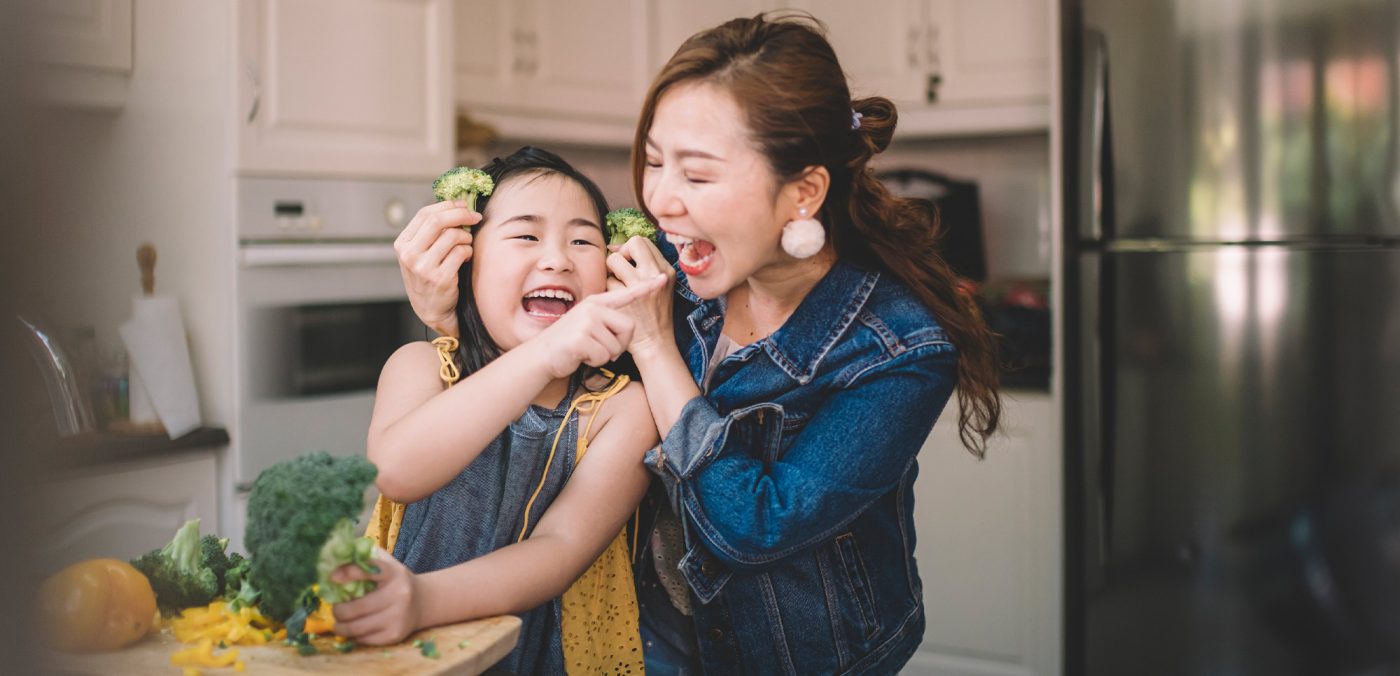ONE LOCAL MOM & CONFLICT RESOLUTION SPECIALIST SHARES HER EXPERIENCES AND ADVICE FOR FINDING YOUR OWN SELF-SERENITY
First comes love, then comes marriage, then comes a baby in a baby carriage. This is what I was hoping for when I met my ex-husband seven years ago. The divorce took over nine months. In the first two months, after physically moving out, I experienced a horrific cycle of feeling sadness, anxiety and anger. Finally, I woke up one morning and decided I was done feeling sad and angry. It wasn’t who I was or am, but rather the opposite.

I have always been a bubbly person with a positive outlook no matter how bad the situation. I wouldn’t allow someone or something to destroy my inner core. I realized at that very moment that I was in charge of my feelings and that it was on me to get through the pain. I had been taught good habits, and what better time to put them into practice.
I began running long distance to relieve my anxiety. And, over the next year, I threw all my energy into building my career, finishing up my doctorate and relocating to a new state. I had the opportunity to restart my life again and promised myself I was going to make the best of it. In fact, I decided to take my story and help other women, especially mothers who were experiencing a similar situation.
Finally, I woke up one morning and decided I was done feeling sad and angry. It wasn’t who I was or am, but rather the opposite.
I asked my family to share my experience with everyone, especially the local Indian community. The Hindu culture views divorce as a stigma, and so before the word spread too quickly, I told my entire family to openly talk about what had happened. I could see my mother was worried about the stigma, so I reminded her that she should be proud of her daughter. My dad, on the other hand, already had his boxing gloves on and was taking it upon himself to tell the world how proud he was of me. In fact, my family was proud that I had the courage to leave someone who had lied to me for so long. They shared their support to break the stigma for women and daughters who had experienced such betrayal. Word of my divorce got out quickly, and within a few months, I found I was helping more and more women who were coming forward with their experiences and narratives.
The Happiness Toolkit For Women
Thus, we begin with the happiness toolkit to empower women to restart their lives with a fresh mind.
The best place to start is to talk about your experiences, whether it’s with a specialist such as myself or a family member/friend. It’s important to share those hurtful experiences, so you can release them and set them free from hurting you any longer. Once you voice the feelings you had at each stage, you are able to acknowledge them and come to learn that those feelings are normal and other woman are feeling similarly. By talking with someone who can relate to you emotionally, you will be able to connect through the pain, sadness, anger and anxiety.
Another important feeling you need to voice is your fear of being lonely, of being a single parent and/or the fact you have been a single parent your entire marriage. Your innermost fears are in fact your own worst enemies. But, once you get over this hump, anything is possible.
Helping moms realize that being a single parent is perfectly doable is the second step in the self-empowerment process. Together, we walk through what it would look like to be a single parent. In fact, many of the women who come to me have already physically removed themselves from a bad situation, and those who have not, almost always do so. Unless they, too, have gone through it, many people don’t understand all that single parents endure. The daily routine of taking care of our kids never ends, and even during the night, you will find the kids making their way back to your bed. The goal is to welcome it, as this is part of the healing process. As parents, we feel the pressure to make sure our kids never experience what we have experienced. However, we must always remember that kids feel our pain, sadness and every happy moment. As cliché as it may be, having a positive mindset is the first step in facing our fears of being a single parent and overcoming any curveball life will throw at us.
As I created my own happiness toolkit, my desire to feel and be happy served as a self-empowerment tool to think only positive thoughts. After a lot of praying and having continuous mental conversations with the Lord, I found my inner strength to share my story and help other single women out there who have experienced a similar trauma. Helping these women is part of my happiness toolkit. But, what empowers you to be stronger and happier? And, how can you get there? At the time, these questions will appear to be extremely difficult to answer. But, you will need to take the time to determine what makes you happy so you can turn these moments into habits; these habits will serve their purpose in a variety of different ways in your life. And, once you find the answers, you will become more self-motivated, self-confident and driven to get back to being you and being positive.

How to Find Self-Serenity
There are many traditional ways adults can find their self-serenity. For me, journaling has helped me turn my negative emotions into positive situations, ensuring that at the end of the day, I will have some time dedicated that makes me happy. You, too, must be dedicated to yourself, your kids and your happiness. If you are looking for inspirations to guide you in the right direction, here are some habits that have worked for me and some of my patients:
#1 Cry. Cry just a little harder, but laugh religiously. Every once in a while, you will realize that you just need a good cry. For me, crying doesn’t come easily, but I can empathize very easily and can feel myself crying inside for a person. What makes a person cry, though? Perhaps it’s from fear or pain, or maybe it’s because of a happy moment. I tell all my clients that crying is a healthy emotion and is a great way to exert stress. For a single parent or parents, it is good to cry in front of your children. Whether they are tears of happiness or not, children are receptive of your feelings already, and it allows them to empathize with others.
#2 Exercise. Exercise is a positive habit, and by working out every day, you will be happier and more in control of your emotions. For me, this is my “me” time, one that no one take can away from me. Yet, you could use this as an opportunity to share good habits with your kids and even spend some quality time with them when you teach them how important it is to take care of their own mind, body and soul. Even by exercising on our own, we can show our children, by doing, how we take care of ourselves.

#3 Garden. Gardening in it’s own magical way can be extremely therapeutic. We are able to nurture nature and see results from our hard work. When I started gardening after my divorce, I found myself encouraged to concentrate on something that is healthy, natural and non-technological. There is also a sense of achievement when a person can run to her garden and bring in items to enjoy and eat. Additionally, teaching children how to garden is not just an important life skill but also a therapeutic skill that opens the doors to regular conversations with your children. You will be surprised what you find out about your kids and their time in school when you create these calm places to converse.
#4 Cook. Many of us live such busy lives that cooking for ourselves can become a chore. I, too, am guilty, and I have even learned from my mom, who is a professional chef. I am an emotional foodie, which means I have to be craving something to want to put in the effort to make it. Cooking dinner with your kids is more than just fun. Cooking together can teach your kids patience, test their attentiveness, learn about the ingredients they are combining, and practice their independence. Making pancakes on weekend mornings is one of my most valued times with the kids. Other great ways to incorporate your kids in the kitchen can be setting the table, tasting the food or making a shopping list.
#5 Meditate. By the end of the day, all of us are exhausted. But, finding at least five minutes of bliss every day can change a mood, a negative emotion and even how you sleep at night. For me, I meditate to fall asleep every night. I didn’t realize the positive impact it could have until I took a six-week course on transcendental meditation, where I learned the importance of sleeping with a clear mind. If meditation is something you are interested in trying, I encourage you to learn it with your kids, whether it be at a local class or in the living room. Meditation can not only help you as a parent but also help your child be more attentive in school and give them a reprieve from the outside world where bullying, self-awareness, and social and cognitive development are constant stressors.
Your happiness toolkit should include anything and everything you want and need in order to help you restart your life with a positive and happy outlook. It will also help you recognize both your and your kid’s emotions that sit below the surface and at the core, so you can turn them into positive situations. By optimizing on our own emotions and self-commitment to happiness, we can in turn find our blissful moments that can help lead to a journey of self-serenity.
is a conflict resolution specialist, focusing on anger management, bullying and family/workplace conflict. Through her work, she teaches children and teenagers on making conflict management a habit as an essential life skill.
YOU MIGHT LIKE



